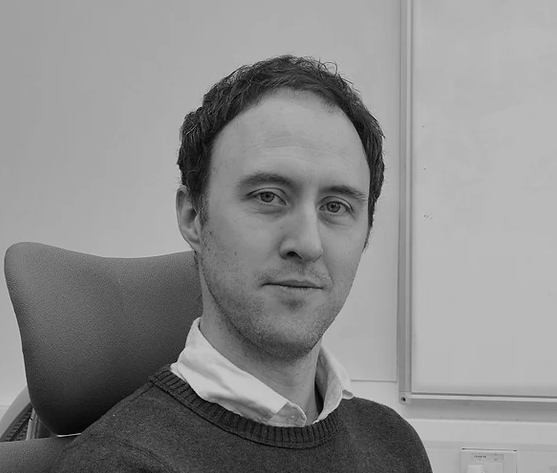Prof Mark Humphries | Tracking subjects' strategies in behavioural choice experiments at trial resolution
- Location
- Hybrid Event, In person event, N224 Gisbert Kapp, Zoom - registration required
- Dates
- Thursday 7 December 2023 (13:00-14:00)

This seminar is free to attend and is open to all, both within and outside the University. Attendance is possible both in-person and on Zoom, details of Zoom registration and physical location can be found above.
We are delighted to announce that the Centre for Human Brain Health (CHBH) will welcome Professor Mark Humphries, Chair of Computational Neuroscience at the University of Nottingham and Lead of the Humphries Lab, to present a hybrid CHBH Seminar, taking place on the date and time above.
To arrange a 1:1 meeting with the speaker, please state your interest in the Zoom registration link above, or email chbh@contacts.bham.ac.uk.
CHBH Event Host
Dr Matthew Apps
Tracking subjects' strategies in behavioural choice experiments at trial resolution
Abstract
Psychology and neuroscience are increasingly looking to fine-grained analyses of decision-making behaviour, seeking to characterise not just the variation between subjects but also a subject's variability across time. When analysing the behaviour of each subject in a choice task, we ideally want to know not only when the subject has learnt the correct choice rule but also what the subject tried while learning. I introduce a simple but effective Bayesian approach to inferring the probability of different choice strategies at trial resolution. This can be used both for inferring when subjects learn, by tracking the probability of the strategy matching the target rule, and for inferring subjects use of exploratory strategies during learning. Applied to data from rodent and human decision tasks, we find learning occurs earlier and more often than estimated using classical approaches. Around both learning and changes in the rewarded rules the exploratory strategies of win-stay and lose-shift, often considered complementary, are consistently used independently. Indeed, we find the use of lose-shift is strong evidence that animals have latently learnt the salient features of a new rewarded rule. Our approach can be extended to any discrete choice strategy, and its low computational cost is ideally suited for real-time analysis and closed-loop control.
Speaker Biography
Mark Humphries is a Chair in Computational Neuroscience at the University of Nottingham, UK. He previously held the prestigious seven-year Senior Fellowship from the UK’s Medical Research Council; before that were a three-year fellowship at Ecole Normale Superieure in Paris, a literal stone’s throw from the Pantheon, and postdoctoral and PhD training at the University of Sheffield. His lab's research attempts to make sense of the collective activity of neurons in the basal ganglia, the brainstem, the sensory and prefrontal cortex, and the sea-slug’s locomotion system - and how they all relate to behaviour. He writes essays for a popular audience at The Spike, and is author of "The Spike: An Epic Journey Through the Brain in 2.1 Seconds".
This seminar is free to attend and is open to all, both within and outside the University. Attendance is possible both in-person and on Zoom, details of Zoom registration and physical location can be found above.